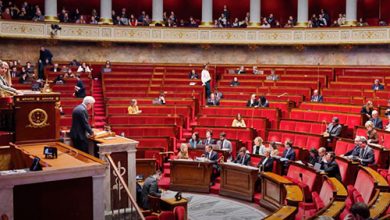

SCROLLING FOR HAPPINESS!
Why social media can be a driver of good mental health – Ruwandi Perera
Countries around the world will celebrate World Mental Health Day on 10 October. Sri Lanka has been slowly but surely turning over a new leaf when it comes to acknowledging mental health as being equally important as physical health.
Yet, the picture doesn’t look too good.
The island’s suicide rate, which was comparatively high even before the economic crisis, is rising rapidly with over 3,400 cases reported last year alone. A recent study published in the Journal of Social Psychiatry and Psychiatric Epidemiology claims that 39 percent of Sri Lankans aged between 10 and 24 suffer from depression.
While the economic crisis may be partly responsible, social media is also being blamed for increased levels of depression.
Humans are wired to be social although we may not always admit it. And today, we’re connected with the rest of the world through Facebook, Instagram, TikTok, YouTube, LinkedIn, WhatsApp and more.
These platforms are now part and parcel of life.
However, the list of allegations against social media seems to be longer than the posts on your Instagram feed on a Saturday morning.
Social media is being accused of keeping us in a bubble – away from the real world – and causing anxiety, loneliness, depression, self-harm and suicidal thoughts. And it is said that people experience the dreaded fear of missing out (FoMO) syndrome.
What’s more, social media is also blamed for making us want to be ‘always on,’ and we’re therefore exhausted and distracted.
Groups and social circles on Facebook and other platforms are criticised for being echo chambers that reinforce opinions without questioning them. And social media is also referred to as the keeper of fake news and gossip.
However, before we jump to conclusions, let’s consider how we can transform this man-made ‘monster’ into a man-made cure.
The world has progressed in leaps and bounds in terms of digitalisation – mostly for good instead of evil. We’re in the era of digital therapeutics, which is the provision of digital care to address mental health concerns through websites, platforms and apps… with or without AI.
Even if we leave this to the professionals, we can still look at using the technology around us to help rather than harm us. For instance, social media can be a promoter of positive habits to trigger holistic wellbeing among other advantages.
Apart from the obvious benefit of keeping us connected, social media is also a place to express ourselves. When it comes to battling mental health issues such as anxiety, depression or negative thoughts and feelings, the anonymity makes it a safe space to express one’s personal emotions and experiences, and seek help without the danger of stigma.
It can also be used as a motivational tool to nurture good habits: take someone who wants to stop smoking when feeling stressed or depressed. By announcing a personal goal on social media and posting progress regularly, he or she receives positive reinforcements from friends (which constitute an online support system).
Social media platforms provide a canvas for creativity through which people can express themselves when they feel good, bad or terrible.
So while we can keep accusing social media and its users of triggering mental health issues, we can also focus on improving our own behaviour and make it work for us.
While some of us are strong enough to go on social media detoxes or limit ourselves to only 30 minutes of scrolling a day, the rest of us can adopt more realistic targets… and find that sweet spot between overuse and ideal use.
It’s key to track how much time we spend on social media and set a goal to reduce it to a healthy level. Turning away from your phone completely, either by sheer willpower or switching on ‘do not disturb’ mode when having meals or spending time with family, will make life for you and those around you a lot better.
Most importantly, ensuring that you set sleep times on your phone and stick to them, which includes stopping social media use in bed, can do wonders.
Though it comes down to mind over matter, it’s tricky in this case since both mind and matter are intertwined for better or worse.
So let’s not make social media the fall guy for our mental health issues but simply be smart enough to use it as a well-prescribed spoonful of medicine.
This content is available for subscribers only.





